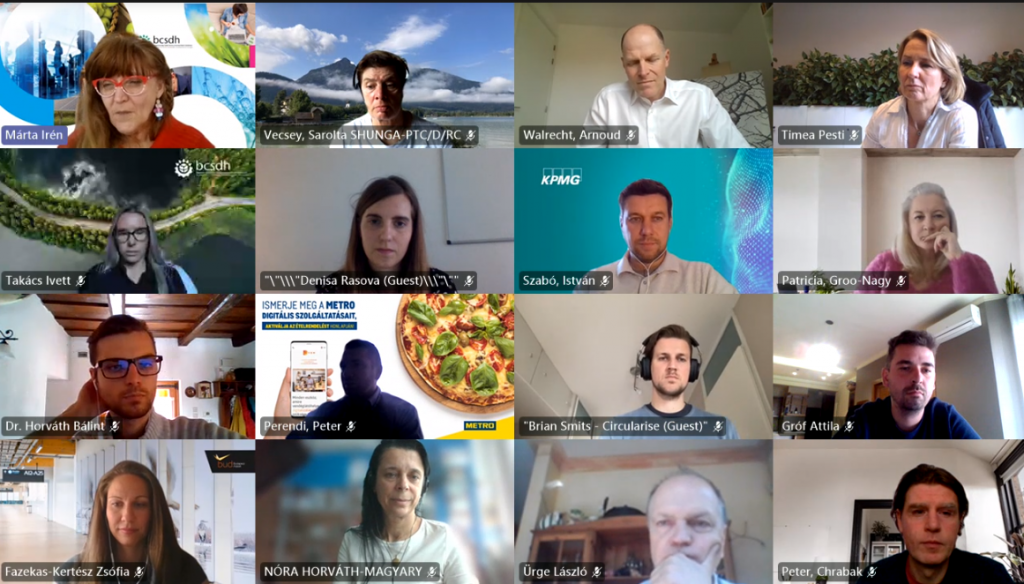Ninety percent of biodiversity loss is caused by the extraction and processing of natural resources. One million species are threatened with extinction by 2050. Over half the world’s total GDP is moderately or highly dependent on nature and its services. The circular economy and biodiversity are closely interrelated. This key message was the focus of the fifth Circular Economy Summit held on November 24, 2022, with nearly 150 people in attendance.
Only 8.6% of the global economy is circular, thus significantly less than the potential scope, even though the circular economy involves a number of tools and complex systems, and is one of the most effective things we can do to tackle the world’s most pressing challenges, including the preservation and restoration of biodiversity. At the biggest circular event of the year (held with the help of ING Bank) a number of corporate and start-up examples of the circular economy were provided along with an overview of international processes.
Today, the Circular Economy Platform, which was established at the initiative of the Hungarian Business Council for Sustainable Development (BCSDH), the Dutch Embassy, and the Hungarian Ministry of Innovation and Technology, consists of 97 members. These institutions have highlighted knowledge-sharing, collaboration, and immediate action as the platform’s most important tasks.

The impact of the linear economy is unquestionable: more than 90% of the biodiversity loss is caused by the extraction and processing of natural resources. In the last decade, the global economy has consumed 70% more virgin materials than the world can safely replenish.
The connection between biodiversity and material management is clear: the circular economy as a form of system-level change can play a role in halting biodiversity loss and can create tangible opportunities for businesses as well.

“Companies must be at the forefront of systemic changes. Those who act earlier are apparently less likely to suffer from external effects such as rising energy prices, shortages of raw materials, or disruptions in supply chains… Climate neutrality must be achieved urgently – among other things – through the spread of the circular economy, which the leading companies have already recognized… according to this year’s ‘Towards Net Zero’ research, the use of circular solutions is increasingly coming to the fore. For the time being, these solutions are mostly seen as new business opportunities alongside preexisting ‘material-intensive’ processes. But the aim should increasingly be to replace the latter, as this approach can only slow down the use of natural resources” – highlighted Attila Chikán Jr., president of BCSDH, in his speech.

“Use the current crisis to build a circular, regenerative and future-proof economy that not only stops the destruction of the Earth but restores the damage that has been done” – stated Efstathios Andreou, Deputy Ambassador of the Netherlands to Hungary in his opening speech.

Guest speaker at the Circular Economy Summit was Prof. Dr. Jacqueline Cramer, a renowned expert on the circular economy, professor at Utrecht University, chair of the board of the Dutch Circular Hotspot, former Dutch Minister of Housing, Spatial Planning and the Environment and author of the book Building a Circular Future, published in 2022, who sees that a clear way to accelerate the process is to join forces and launch as many pilot projects as possible: “Coalitions and alliances need to be built with those willing to take the lead in making a circular future a reality, and the number of pilot schemes needs to be expanded with more and more donors and active government involvement.”

Hungary is currently not managing its natural resources well, and is far from circular, but it is encouraging that, as in Europe, the legislative process has started to address the issue of the circular economy. These are important steps that can ensure that Hungary’s further development does not take place by using up natural resources. Tamás Rentz, Head of the Department of Sustainability and Awareness Raising at the Ministry of Technology and Industry, reported on the progress made so far and on the next steps.
The transition to a circular economy is today’s big business opportunity. The essence of the concept is not yet well understood by most economic actors, but it is a model that can increase the resilience of the economy and facilitate the achievement of the Paris Agreement on climate change and the UN Sustainable Development Goals. Creating a circular economy could represent a global business opportunity worth USD 4.5 billion by 2030.

“Sustainability is at the heart of ING Bank’s strategy. We see the shift to a circular economy as essential to preventing climate change, and financial institutions have the responsibility to be the drivers of this process, as we banks can provide the finance to make the transition“ – added Tibor Bodor, CEO of ING Bank, host of the event.

The role of finance, regulation and companies in conserving natural diversity and circular solutions associated with this were the topics of the roundtable discussion moderated by Irén Márta, Managing Director of BCSDH, at which Tibor Bodor, CEO of ING Bank, Dr. Barbara Botos, Travelling Ambassador for Climate Affairs and Climate Diplomacy of the Ministry of Technology and Industry, Norbert Holczinger, Head of Department of the Hungarian National Bank, and Marianna Pinczés, Managing Director of Virgin Oil Press Ltd., discussed the relevant issues, also providing insights into relevant events at COP27, which concluded last week. The key message is that the current crisis is forcing an acceleration of change, but we need to prepare for this in the longer term. It is no longer enough to set long-term targets: we need intermediate targets, metrics, and concrete steps to drive real change and ensure that the taxonomies that are being developed do not come as a shock to the business sector.

The second roundtable discussion of the event moderated by Bálint Horváth focused on international business development experiences with the circular economy and sustainability. Among the participants were Roman Gdovjak, Cyrkl (Expansion Manager & Country Manager Slovakia & Hungary); Agata Frankiewicz, CEO and Founder of Deko Eko; Martijn Veltkamp, Design Manager at FiberCore Europe; Lennard de Klerk, owner of Irota EcoLodge; and, Martin Basila, CEO of Sensoneo.
The main message of the panel discussion was that waste is ‘eternal,’ so it can be an eternal problem or an eternal business opportunity. The interlocutors shared their experiences in terms of how they create opportunities related to this problem and how they have expanded their activities to several countries and continents, and what plans they have for expansion in Hungary.
BCSDH – one of the founders of the Circular Economy Platform – strives to be a community of highly committed companies and business leaders, and is encouraging and supporting its nearly 130 member companies – and, following them, the business sector as a whole – to go ‘beyond emissions’ and focus on biodiversity conservation and restoration and reversing growing social inequality.
This is what our Time to Transform 2030 (a decade-defining program built on the achievements of Action 2020) is all about, to which our Circular Economy Platform is also connected.
Thanks for the sponsors of the Circular Economy Platform in Hungary:

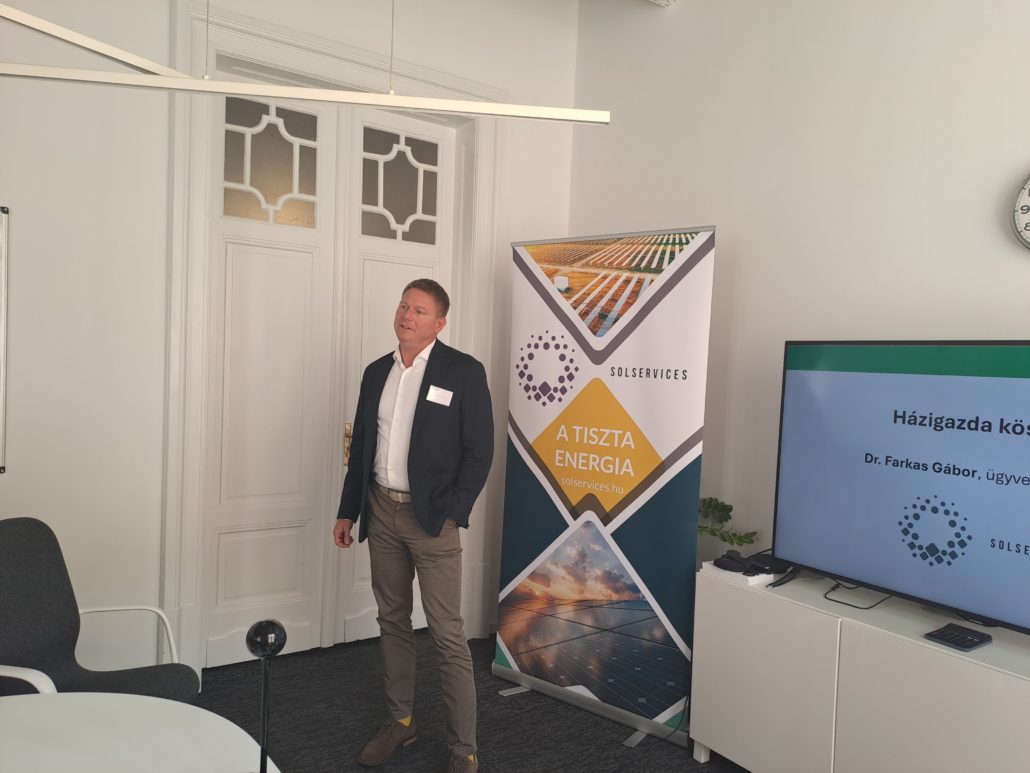
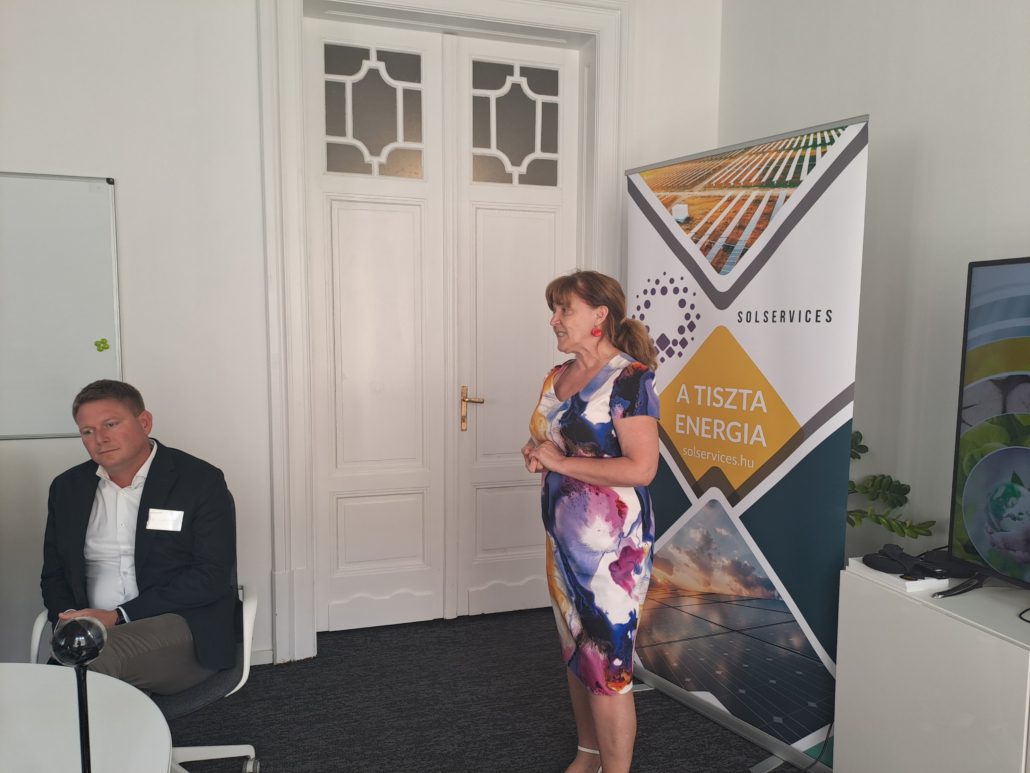
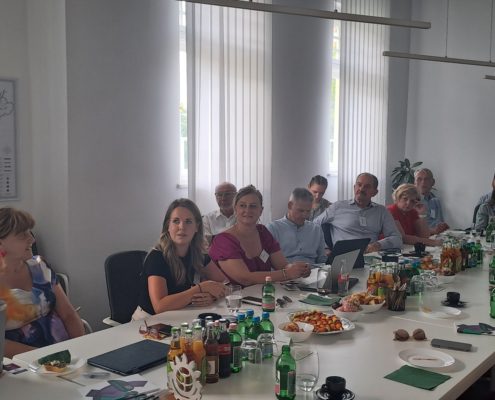 As an inspiring example of practical implementation, Bettina Bondár-Marosvári, Ayvens’ marketing and PR group leader, presented the company’s upcycling project. During the merger of LeasePlan Hungária Zrt. and ALD-Automotive Hungary Kft. and the rebranding process, the marketing materials of the two companies were not discarded as waste, but were recycled in a value-creating project. The end result was 250 bags, laptop bags, and backpacks used by employees. In addition, they also became tools for change management and internal communication.
As an inspiring example of practical implementation, Bettina Bondár-Marosvári, Ayvens’ marketing and PR group leader, presented the company’s upcycling project. During the merger of LeasePlan Hungária Zrt. and ALD-Automotive Hungary Kft. and the rebranding process, the marketing materials of the two companies were not discarded as waste, but were recycled in a value-creating project. The end result was 250 bags, laptop bags, and backpacks used by employees. In addition, they also became tools for change management and internal communication.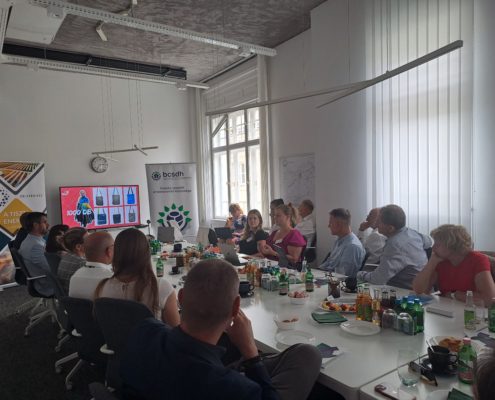
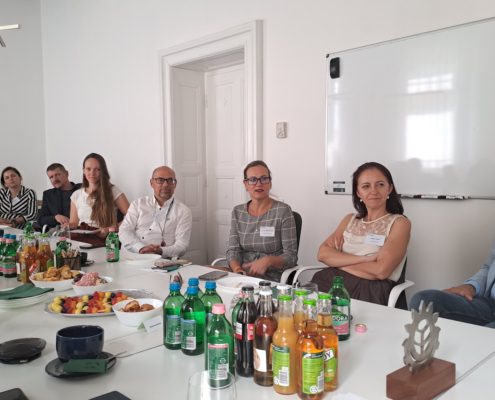 The second half of the meeting focused on the joint preparation of the Circular Economy Hotspot international conference, which will be held in Hungary for the first time between October 5 and 7, 2026. Led by Irén Márta, director of BCSDH, the participants began jointly planning the professional direction and focus points of the event. The working group once again demonstrated that the corporate sector is committed to circular solutions and is ready to think collectively for a circular future.
The second half of the meeting focused on the joint preparation of the Circular Economy Hotspot international conference, which will be held in Hungary for the first time between October 5 and 7, 2026. Led by Irén Márta, director of BCSDH, the participants began jointly planning the professional direction and focus points of the event. The working group once again demonstrated that the corporate sector is committed to circular solutions and is ready to think collectively for a circular future.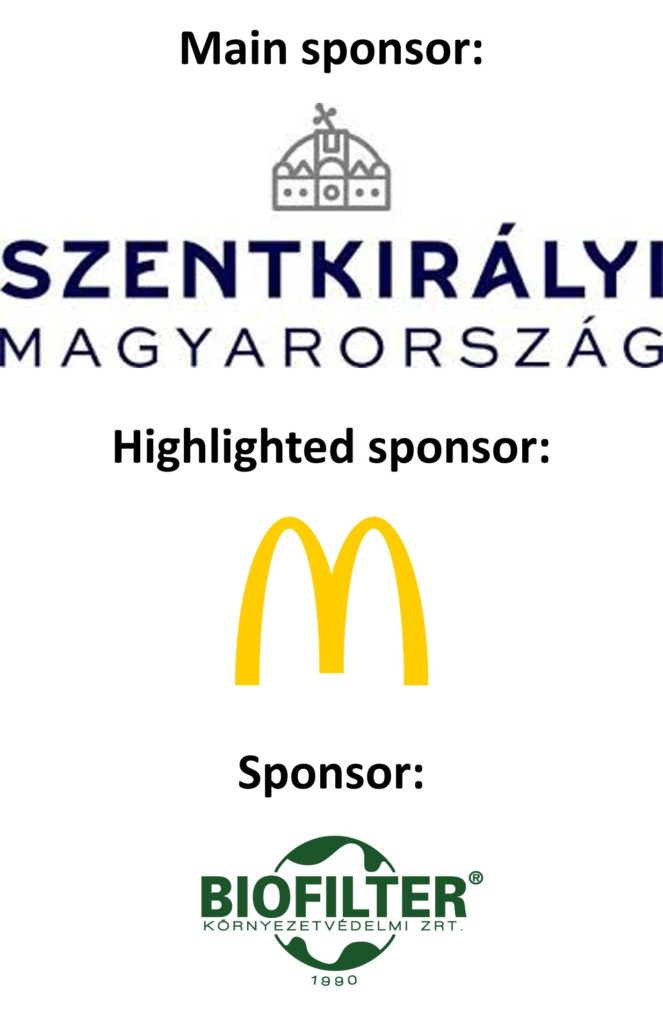

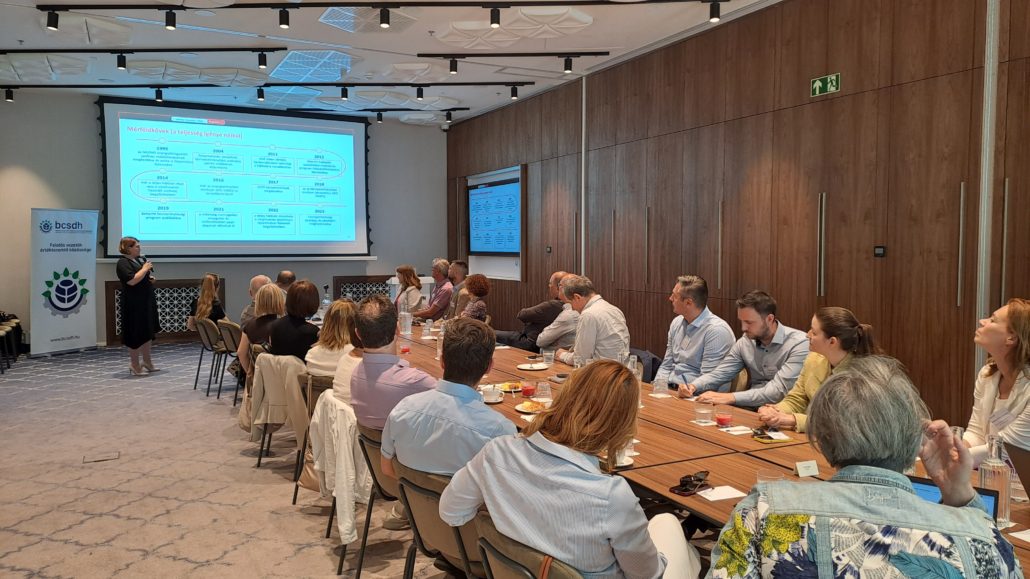
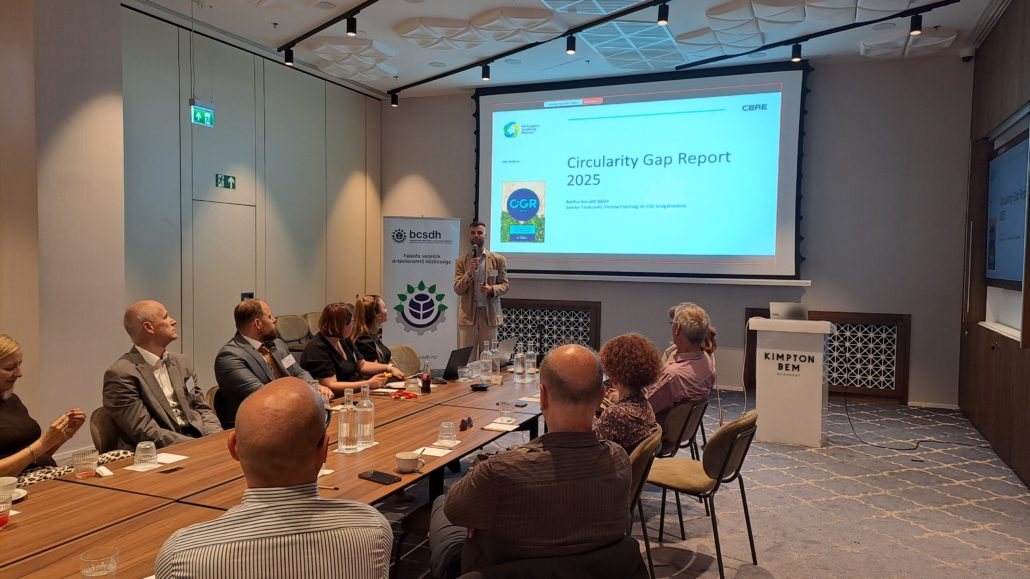
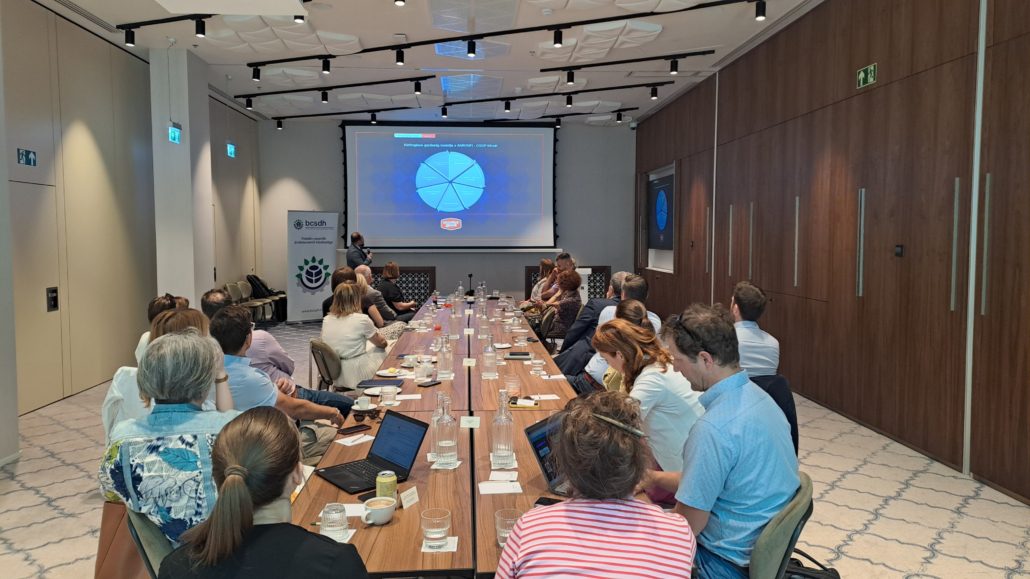
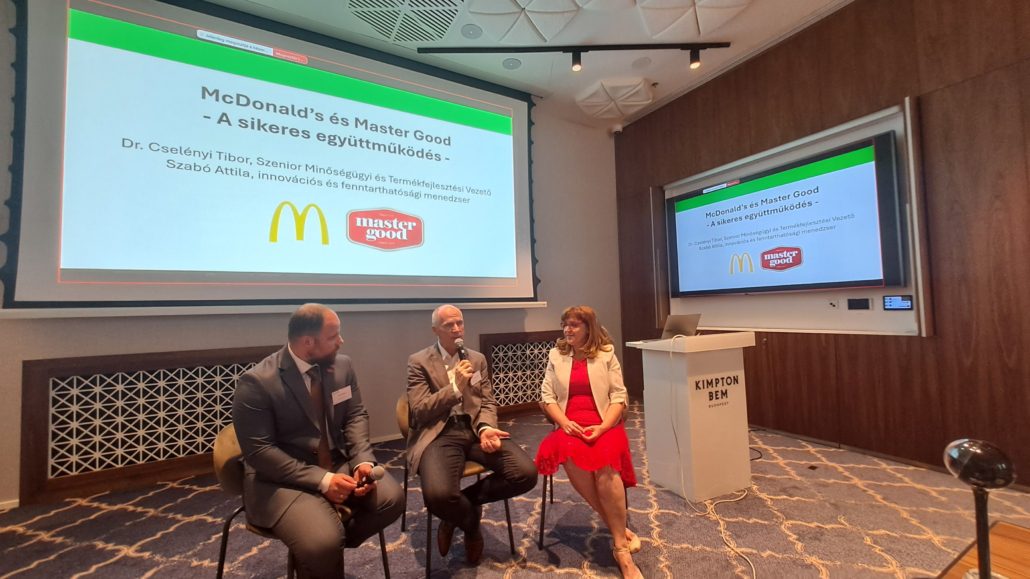




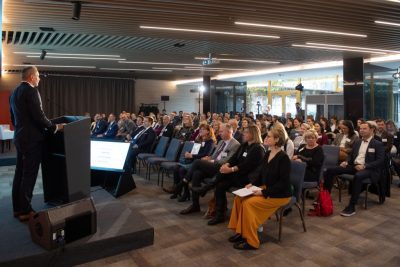
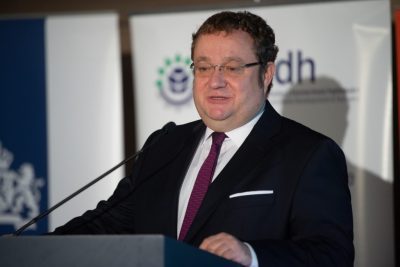
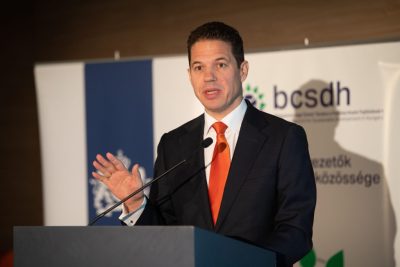




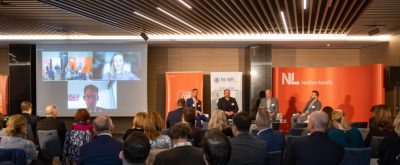










 The project partners are the Slovak Business Agency, the Institute of Circular Economy, the Business Council for Sustainable Development in Hungary and IFKA Közhasznú Nonprofit Kft. The project is implemented under the Interreg Slovak Republic – Hungary program with the support of the European Union through the European Regional Development Fund and supported by the amount of 155 081,99 euros. The project lasts from December 2020 to March 2022.
The project partners are the Slovak Business Agency, the Institute of Circular Economy, the Business Council for Sustainable Development in Hungary and IFKA Közhasznú Nonprofit Kft. The project is implemented under the Interreg Slovak Republic – Hungary program with the support of the European Union through the European Regional Development Fund and supported by the amount of 155 081,99 euros. The project lasts from December 2020 to March 2022.



 Transitioning to a circular economy is a great business opportunity today. The core of the concept is not yet deeply understood by most companies, although the use of this model can increase the resilience of the world economy and facilitate the achievement of the Paris Climate Change Agreement and the United Nations Sustainable Development Goals. The circular economy could generate business opportunities worth $4.5 billion worldwide by 2030.
Transitioning to a circular economy is a great business opportunity today. The core of the concept is not yet deeply understood by most companies, although the use of this model can increase the resilience of the world economy and facilitate the achievement of the Paris Climate Change Agreement and the United Nations Sustainable Development Goals. The circular economy could generate business opportunities worth $4.5 billion worldwide by 2030.


